Refugee crisis: What asylum seekers in the Calais Jungle hope for in 2016
In a place widely regarded as being devoid of hope, is there any left at all for the upcoming year?
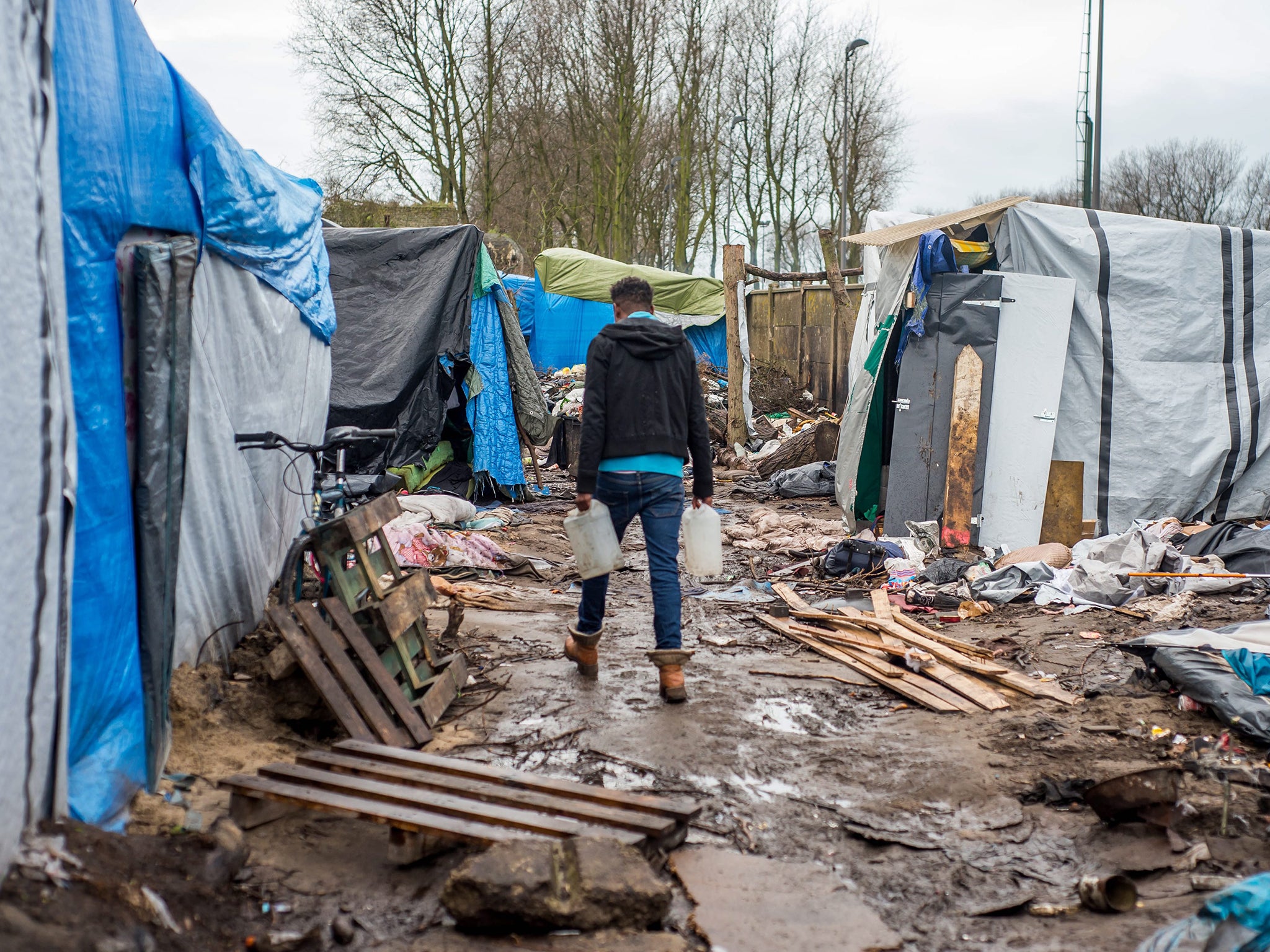
Your support helps us to tell the story
From reproductive rights to climate change to Big Tech, The Independent is on the ground when the story is developing. Whether it's investigating the financials of Elon Musk's pro-Trump PAC or producing our latest documentary, 'The A Word', which shines a light on the American women fighting for reproductive rights, we know how important it is to parse out the facts from the messaging.
At such a critical moment in US history, we need reporters on the ground. Your donation allows us to keep sending journalists to speak to both sides of the story.
The Independent is trusted by Americans across the entire political spectrum. And unlike many other quality news outlets, we choose not to lock Americans out of our reporting and analysis with paywalls. We believe quality journalism should be available to everyone, paid for by those who can afford it.
Your support makes all the difference.The refugee crisis defined 2015. In the last year, more than a million people have fled their homes in search of safety, with many risking their lives in the process.
After the body of three-year-old Alan Kurdi washed up on the shores of Turkey in September, European governments came under immense pressure to act. And, to an extent, they did. Britain is now accepting 20,000 Syrian refugees until 2020, while France will take 30,000 in the next two years, and Germany will accept 500,000 every year.
But there’s a problem. As anyone who has followed the crisis will know, not all refugees are Syrian. Many are from Eritrea, Afghanistan, Iraq, Sudan – and a considerable number of them can be found just across the channel in Calais.
It’s impossible to know just exactly how many men, women, and children are living in “The Jungle” – the town’s now infamous refugee camp – but the latest estimate is over 7,000.
The camp is built on a rubbish dump, and you can tell. A dirt track winds through the camp from one end to another, lined by shops, restaurants and even a barber’s shop built from wood and tarpaulins. Walking along this strip you get an impression that things perhaps aren’t so bad – but stepping off the road you see row after row of makeshift tents covering uneven boggy land. Debris and human waste are everywhere.
While the camp has largely been ignored by the French government, it hasn’t been by the press. In the last year it has become the uneasy symbol of the world’s forgotten refugees, caught in a strange limbo between misery and safety.
Every so often there’s news that another inhabitant of the camp has died trying to smuggle themselves to Britain. Already this year a fifteen year old boy from Afghanistan has died in the back of a lorry. And recently “The Jungle” was in the news again after Banksy graffitied an image of Steve Jobs within the camp, whose father was a Syrian migrant.
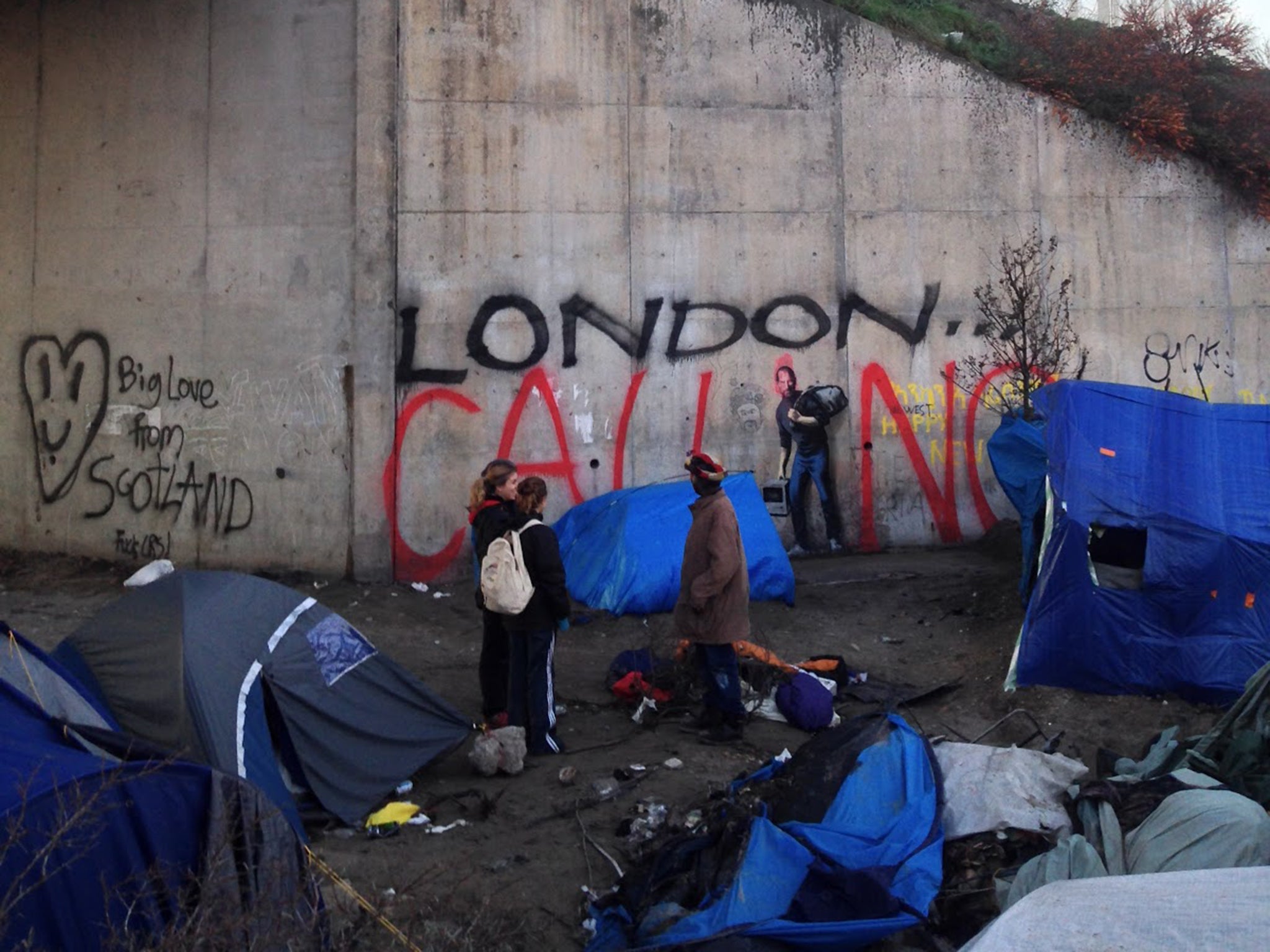
In the run up to New Year’s, we decided to volunteer at the camp with the charity L’Auberge des Migrants. In between sorting through the clothes and food that people have donated, we wanted to know how the people living in the camp felt about 2016. In a place that is widely regarded as being devoid of hope, was there any left at all for the upcoming year?
Danny, 26, from Eritrea has been living in the camp in Calais for 3 months.
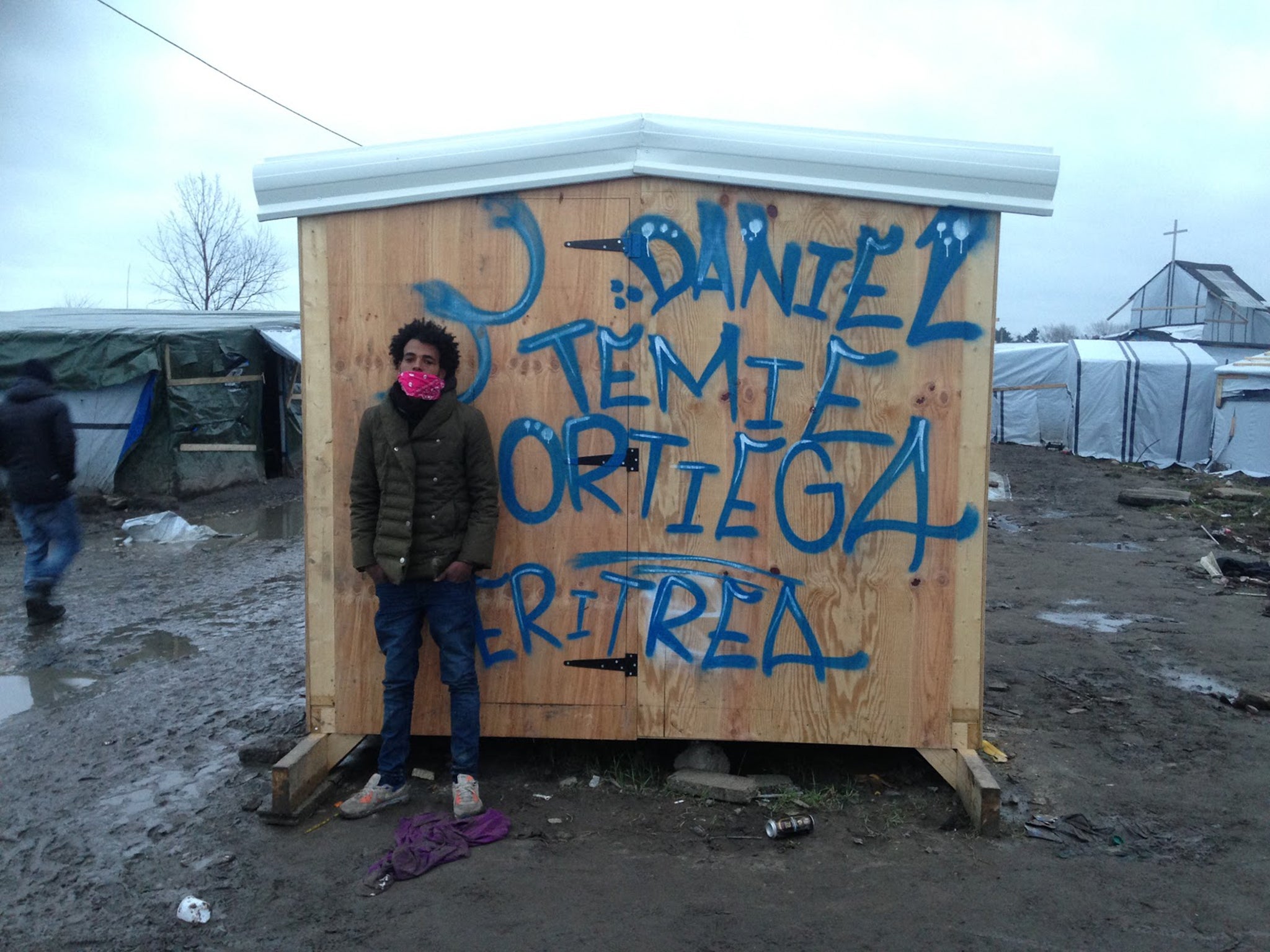
“I don’t hope for anything in 2016 because tomorrow is just another day. The 5 changes to a 6, you might write the date differently, but for me nothing will change. I fled Eritrea after being forced to serve in the in army for ten years when recruited at the age of 15. I had no choice but to flee - I would have been forced to fight until I died. I hoped I would gain the freedom to make my own choices in the UK, but here, in the jungle, I’m not free either.”
Abia, 34, and Nina, 3, from Iraq, have been in the camp for 4 months
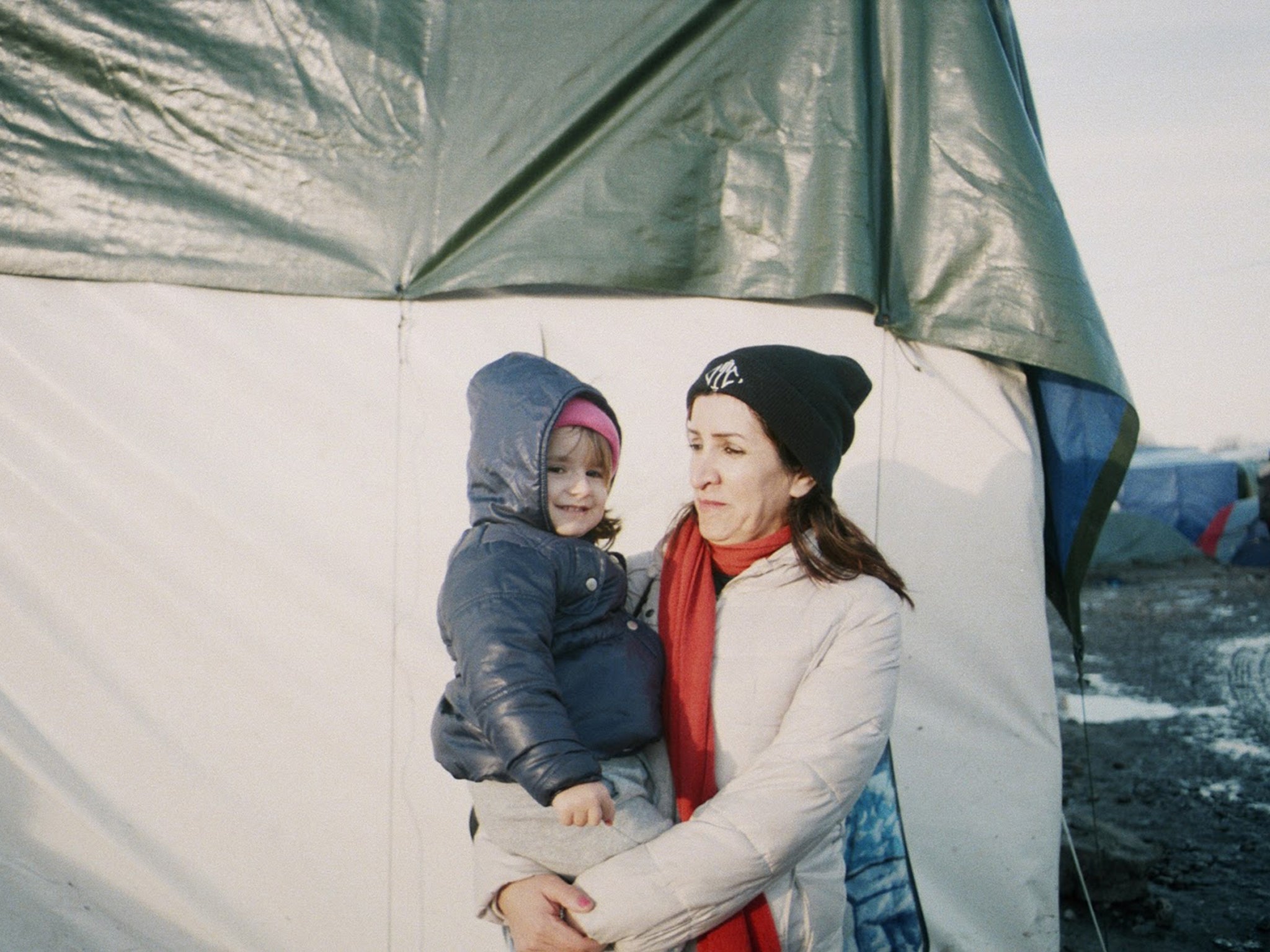
“At the moment I want a bigger shelter. Right now there are six of us living in here: me, my cousin, my three brothers, and Nina. My husband sadly didn’t make it to Calais. I suppose there wouldn’t be any space in here for him anyway - it’s already so crowded, although at least this way we are warmer. But a bigger tent would be more comfortable - although I’m not saying I want to stay here. I don’t want Nina to grow up here, it’s not safe for children. I hope we will be able to reach a place where she can go to school one day.”
John, 30, from Afghanistan, has been living in the camp for 3 months
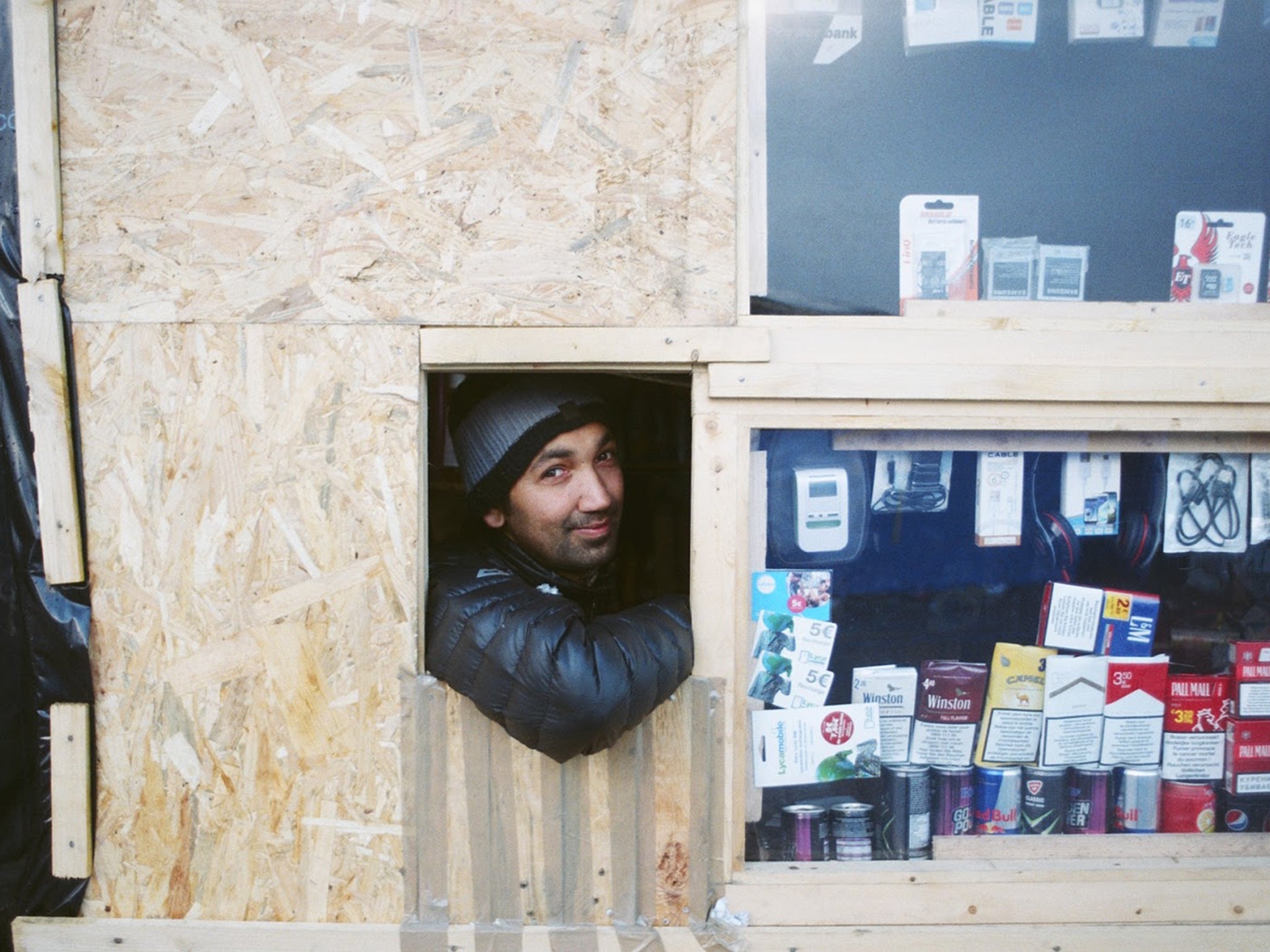
“I’d like to reach Hackney in London, so I can live with my brother. He was granted asylum in the UK in 2010 and has been living there ever since. The thing is, it’s impossible to cross the border, and so I won’t be able to claim asylum in the UK. I’m doing better than most people here with my shop, but I can’t stay like this - it’s not the life anyone would want. When it rains everything is soaked through and it’s so loud on the roof of my tent. It gets very cold. Back home I had a textile shop where I imported textiles from China and India. I would love to be able to open my own shop in London.”
Omer, 19, from Kurdistan, has been in the camp for 3 months
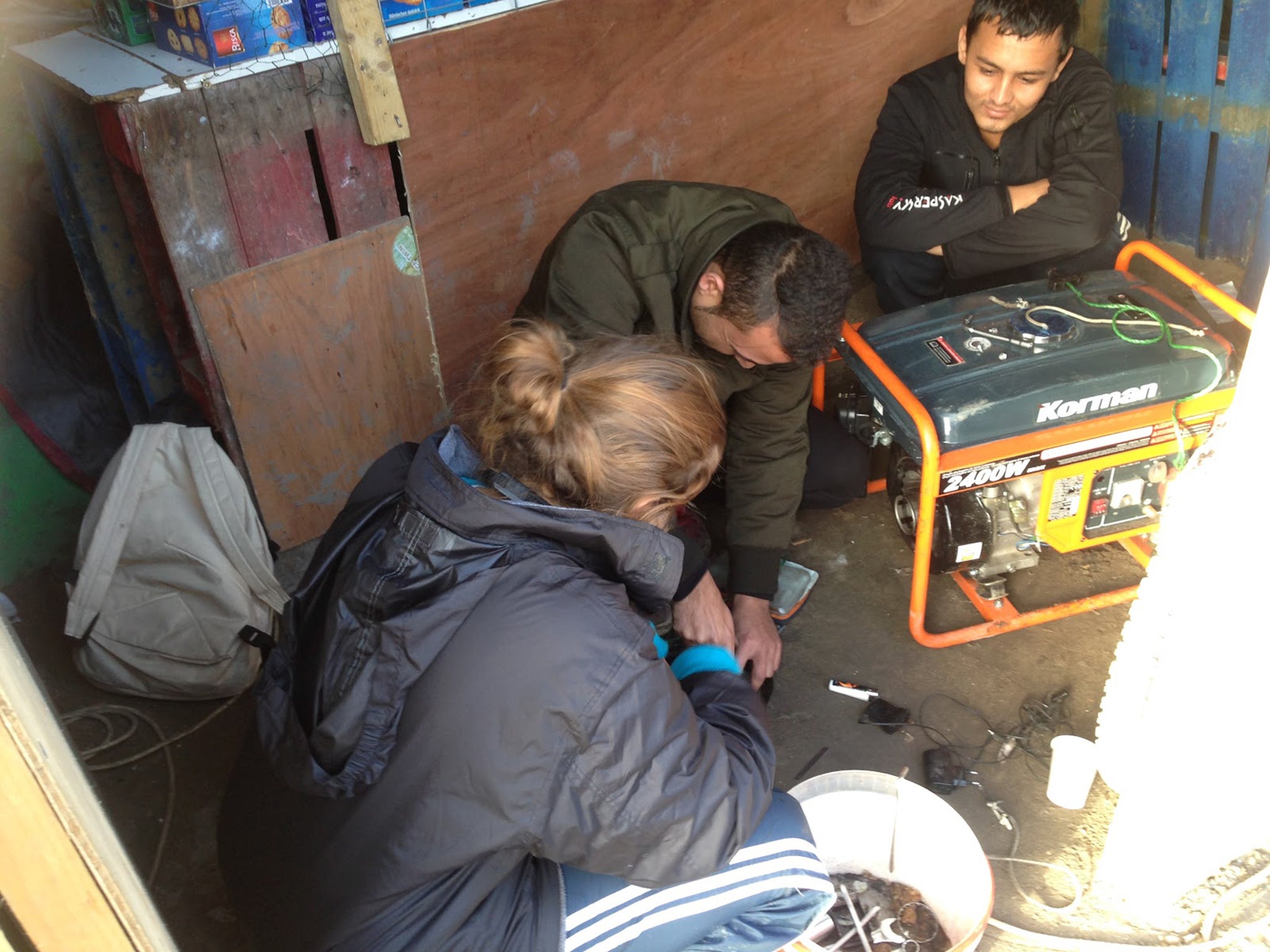
“I hope I’ll be able get this generator to work. I don’t think too far ahead because here you can’t allow yourself to dream too much. This isn’t living. We do nothing but waiting all day, and then try to make the crossing in the evening. It’s dangerous here too. There’s is so much frustration that people get very aggressive. I heard two people died last night – there was a big fight in the camp. But there’s nothing I can do about that. If we can just get the generator to work then we can sit inside Mohammed’s place, outside of the cold and the rain.”
Hussain from Pakistan, 42, has been living in the camp for 2 months
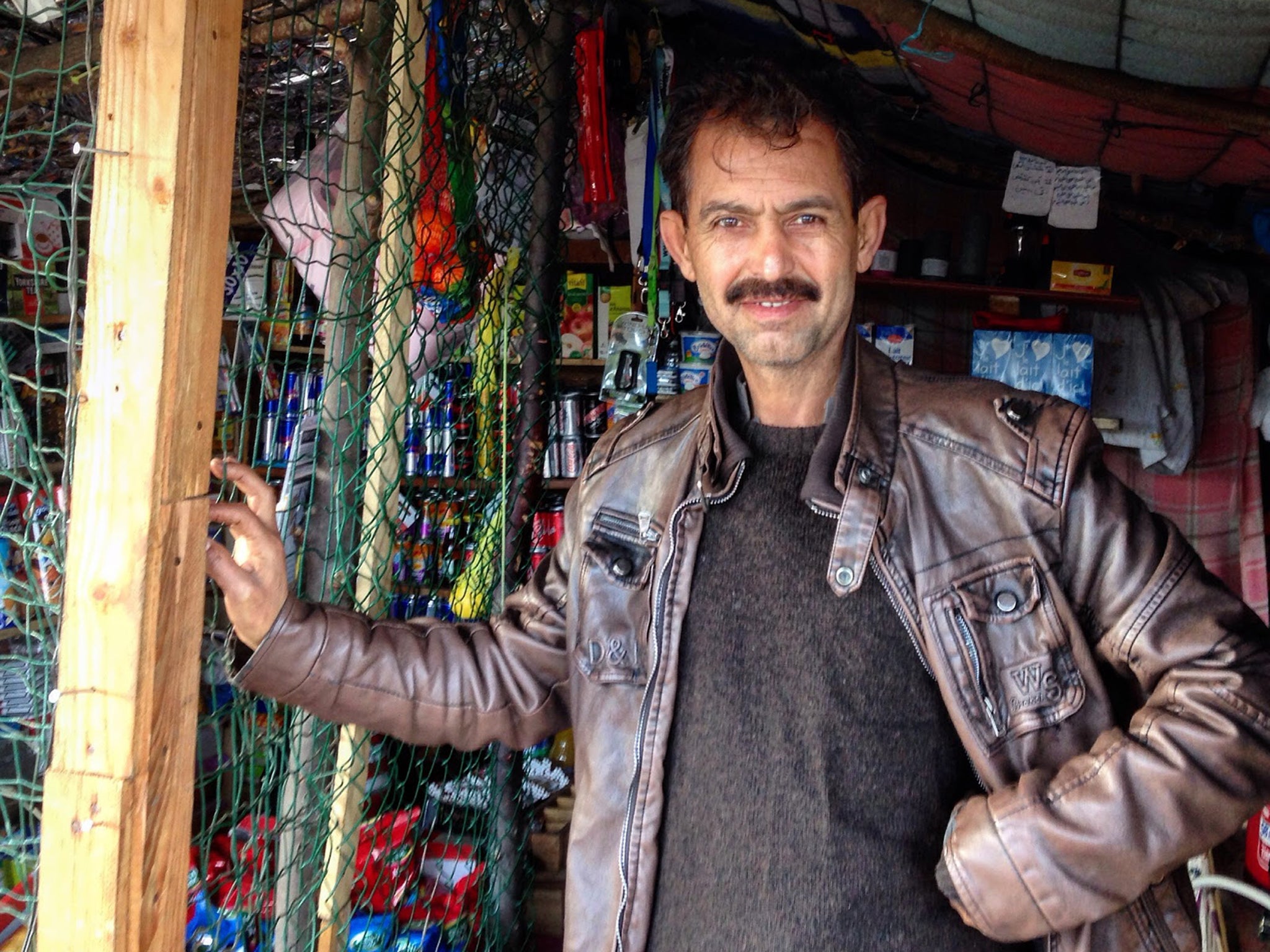
“I’d like to go back to Birmingham. I lived there for two years, working in construction. I loved it there. I worked hard and built myself a life and had many friends. I went back to Pakistan in 2013 to be with my family, and now I can’t go back to the UK. I’m trapped here: if I go back to my family in Pakistan I throw away everything I sacrificed to get here. I want them to be able to join me in Birmingham; there is no opportunity for us where I come from - we don’t have enough money to live. Why should the place I was born prevent me from being able to earn enough money to feed my family?”
Aslam from Afghanistan, 24, has been in the camp for 2 months
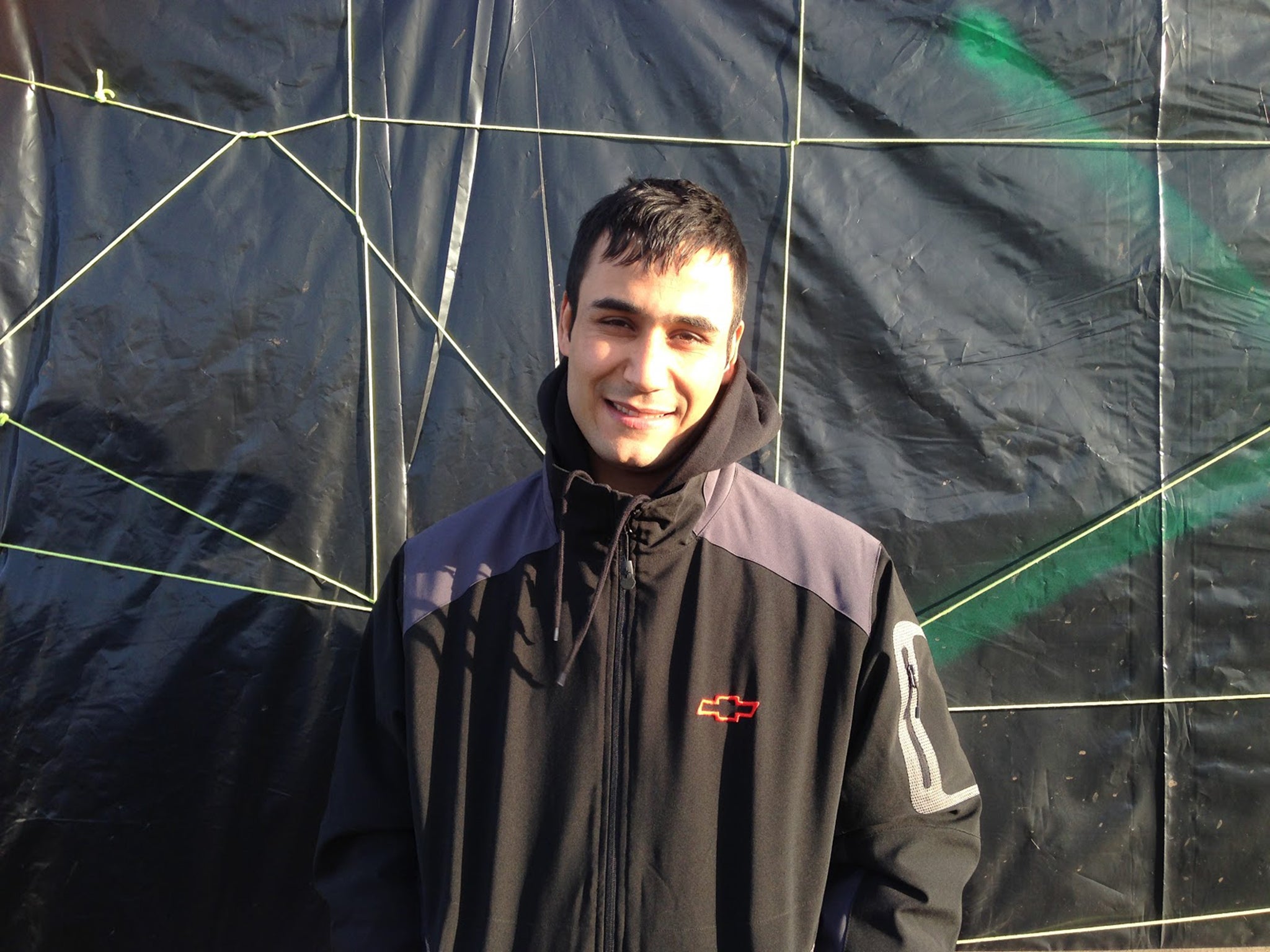
“Next year I want to complete my business degree. I had been studying for two years in Kabul when the Taliban attacked the city and my course was put on hold. Next year I want to finish my degree and graduate. Then I could go on to get a good job and earn money. Right now I am so poor, I have nothing. There is no chance of making any money in my country, it’s such a mess.”
Mohamed from Sudan, 22 has been living in Calais for 10 months
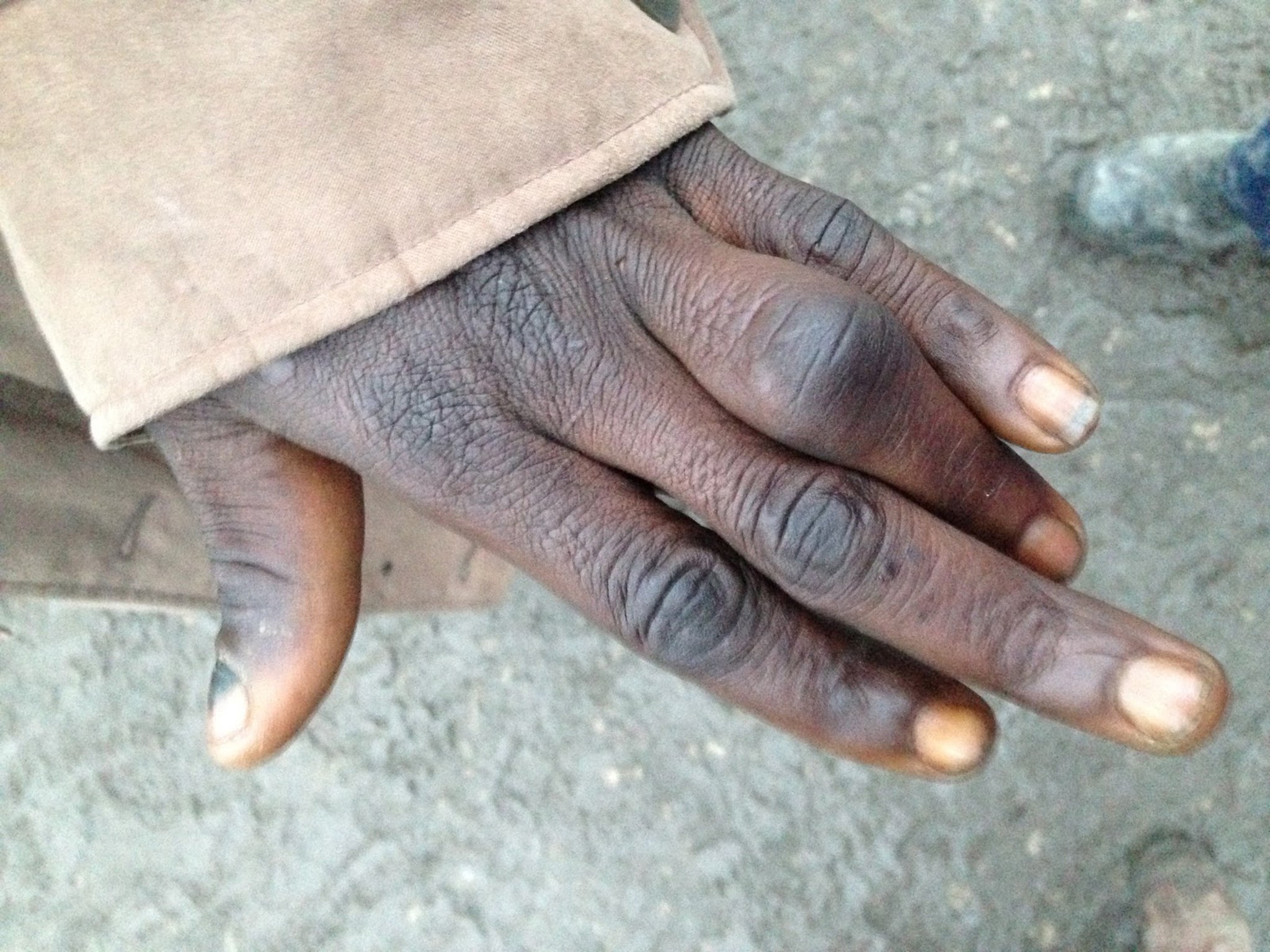
“I hope that my hand will stop hurting. I tried to make the crossing on the train a few weeks ago, but the police caught me. They were very aggressive and broke these two fingers. I haven’t been able to see a doctor and I don’t think my fingers will ever look normal again. The police always seem so angry. Some nights, they throw tear gas from the road down into the tents. There are women and children here too. It’s not fair, where do they think we will go?”
Firas, 18, from Syria, arrived at the camp last night
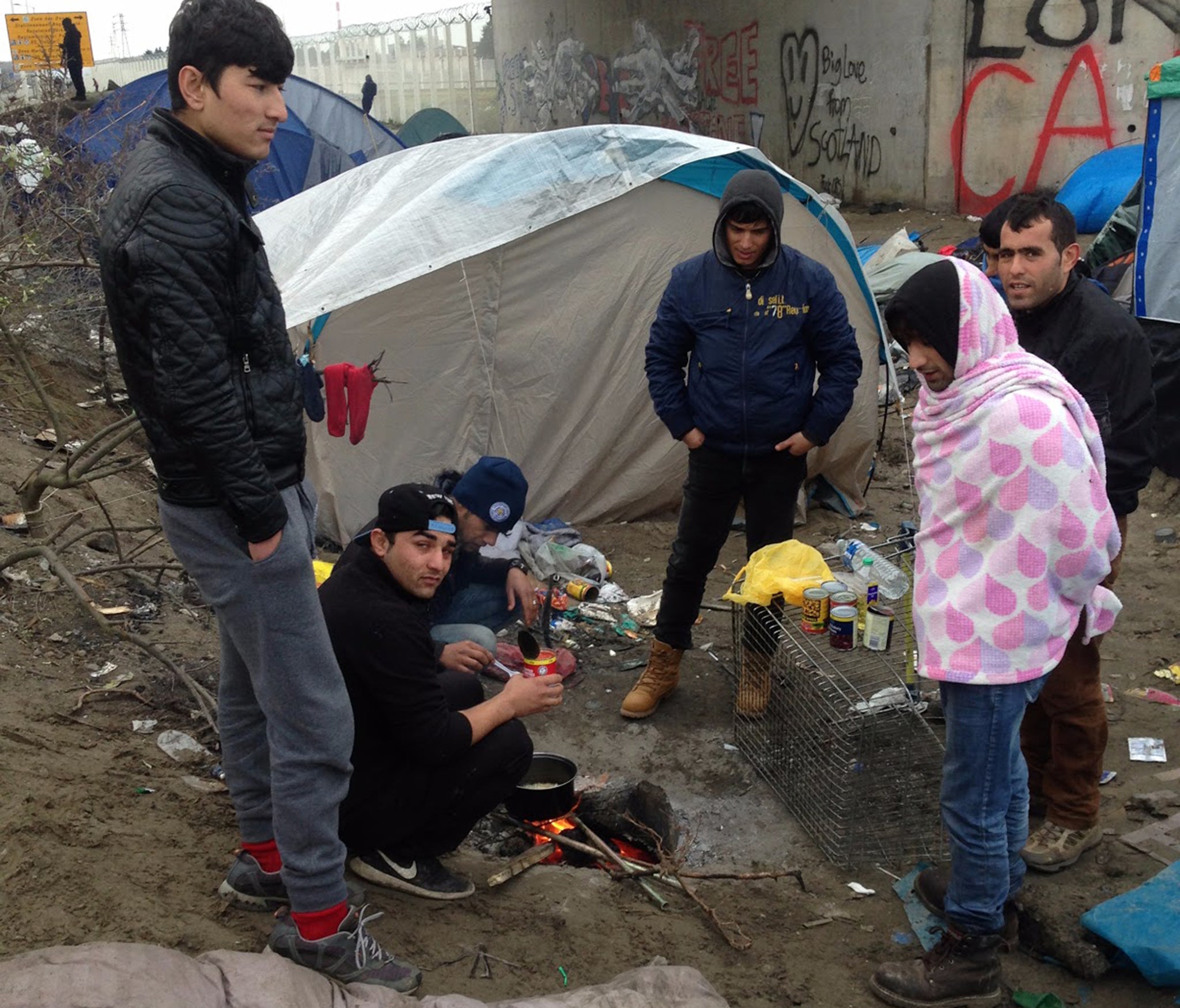
“I just want a tent and coat. I have been travelling on foot for the last three months and I don’t have anything. When I have those things, come back and ask me. Right now I’m too cold.”
Twitter: @pascalehughes
Join our commenting forum
Join thought-provoking conversations, follow other Independent readers and see their replies
0Comments